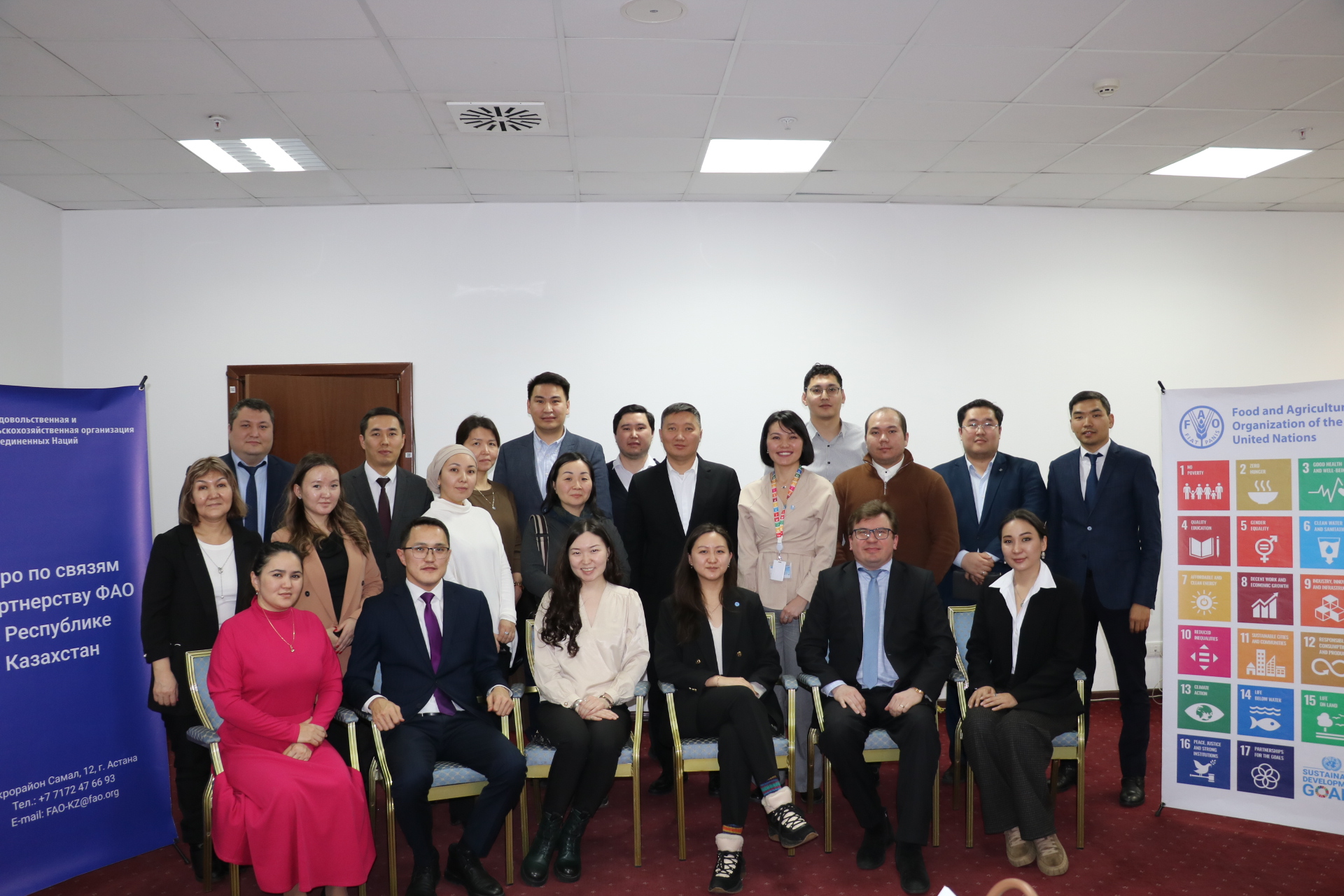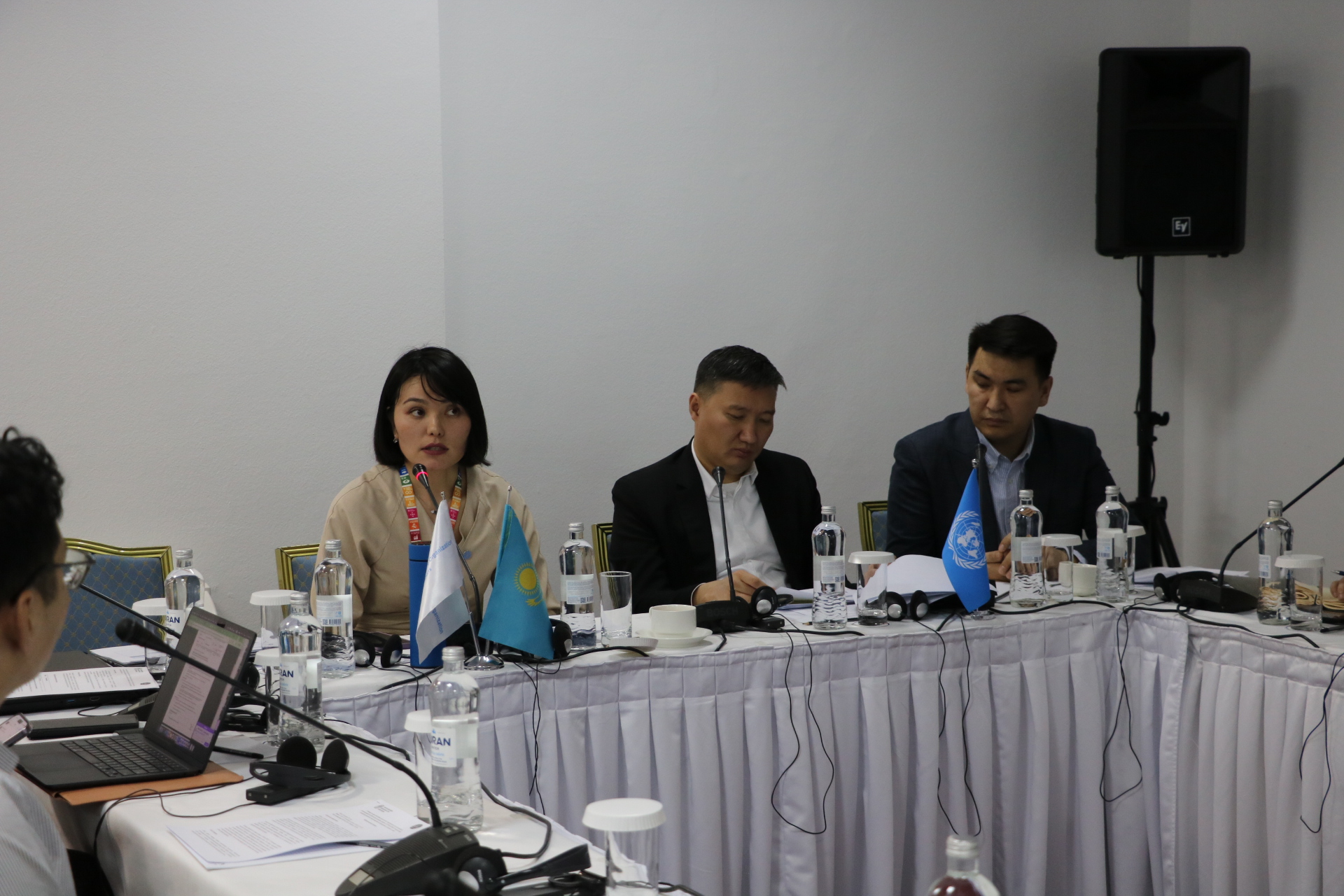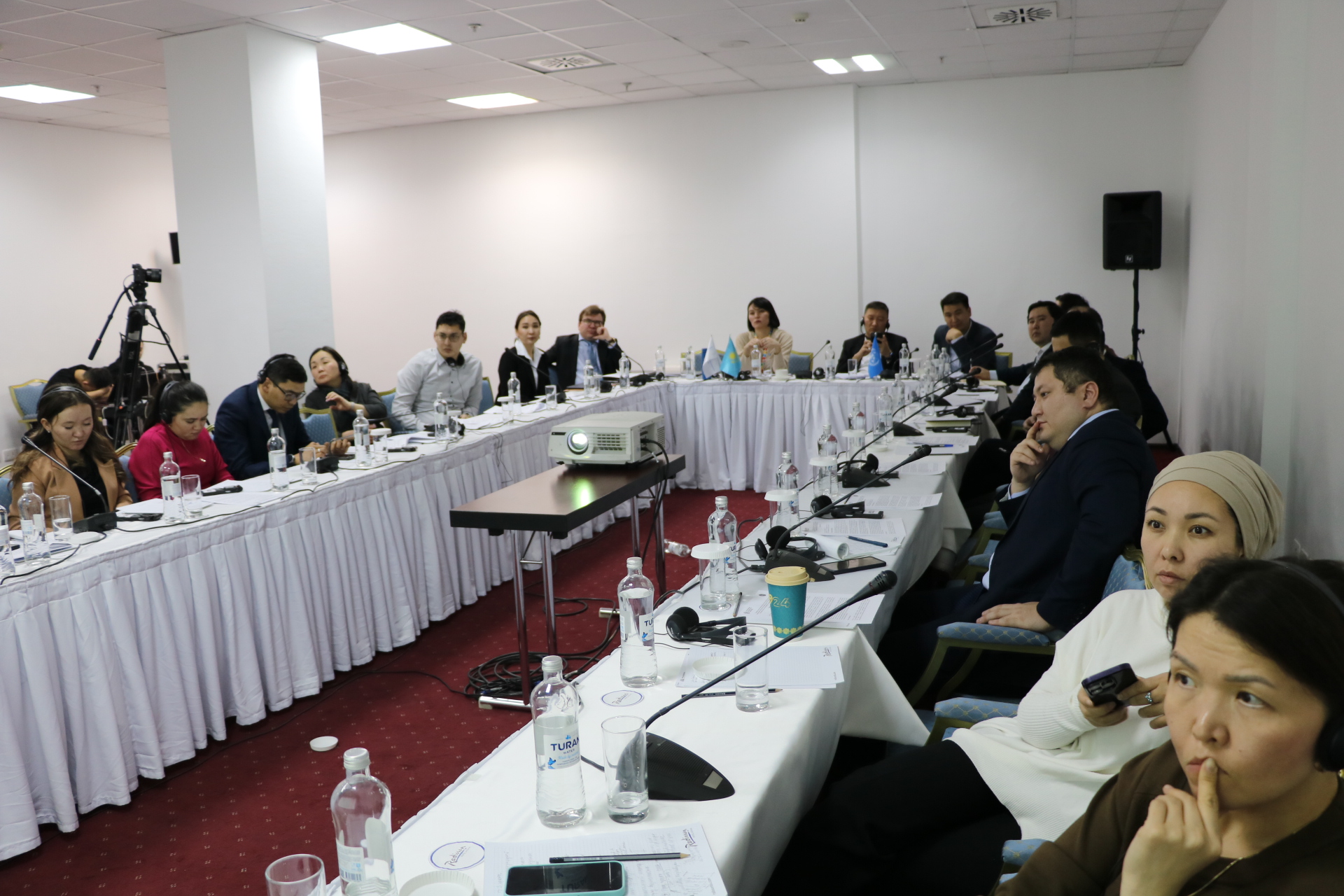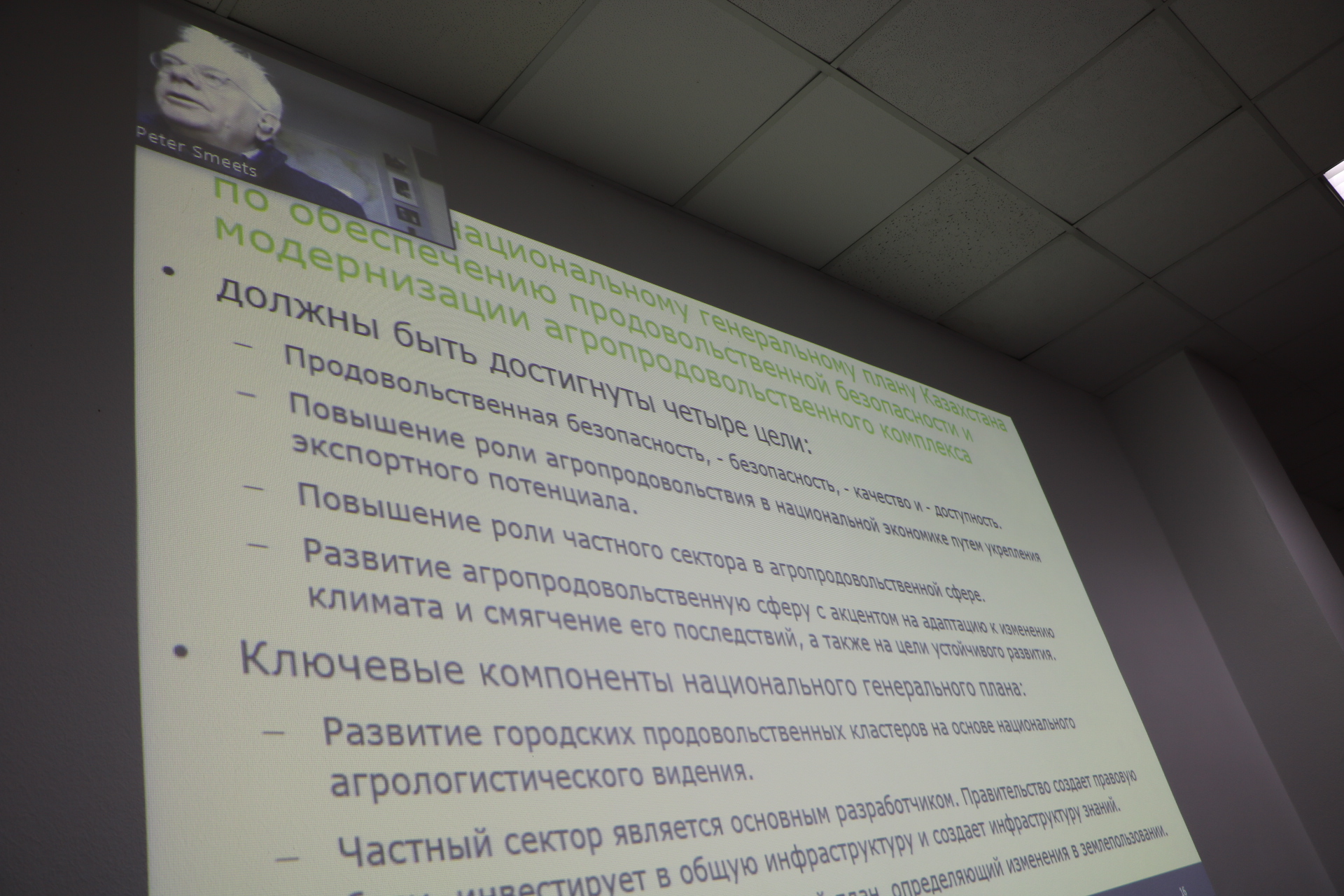
FAO Kazakhstan held an international seminar on the development of an international agri-food hub in Kazakhstan where representatives of the Ministry of Trade and Integration, the Ministry of Agriculture, QazTrade JSC, and industry experts from the Netherlands, America and Tanzania have participated.
During the meeting, overall outcomes of case studies on agri-food hubs activities in Africa, the Netherlands and the USA were presented, conclusions and recommendations for Kazakhstan on the development of a cross-border agri-food hub based on international experience were discussed and further steps to implement the project recommendations was also considered.
Over the past five years, there has been a noticeable positive trend in the turnover of agricultural products, which is manifested in an increase of 7.5% in sales volume and 70.1% in value terms. An analysis of the impact of exports on agricultural development showed that exports ensure the development of about 40% of commercial agricultural production, providing income and employment in rural areas, noted FAO program coordinator in Kazakhstan Zhanyl Bozaeva.

Considering the high relevance of the issue, Vice Minister of Trade, and Integration of the Republic of Kazakhstan Kairat Balykbaev noted the importance of implementing this project in Kazakhstan. He recalled that the tasks of creating advanced agri-food hubs in the country, as well as strengthening interregional cooperation, were repeatedly voiced by the Head of State at various venues.
The development of agri-food hubs will not only stimulate the development of exports of agricultural products but will also strengthen our own food security by stimulating the agricultural industry.
It is worth to note that the proposed hubs in the direction of Uzbekistan and Kyrgyzstan open for Kazakhstan, along with the Central Asian region, a path to the markets of the Middle East and the Indian region.

Considering the importance of exporting for the development of about 40% of commercial agricultural production, First Deputy General Director of QazTrade Nurlan Kulbatyrov in his speech separately focused on this point. He claimed that without export of agricultural crops, agrisector will suffer great losses, since farmers will have no possibilities to sell their products. In this regard, the state must be very careful about the development of exports and create all the necessary conditions for this.
As part of the work, there was also the task of assessing informal flows of agri-food products. To do this, QazTrade experts analyzed data on the shadow economy published by the Bureau of National Statistics of the Republic of Kazakhstan, the World Bank, and conducted a survey of commodity producers, traders and various associations in Kazakhstan. The main reason for the formation of shadow turnover, as in all countries of the world, is the attempt of entrepreneurs to optimize their expenses by evading taxes, as well as the difficulty of maintaining tax and accounting records for small farmers.
In general, the high level of shadow turnover reduces the export potential of Kazakhstan and does not contribute to the development of agri-food hubs, a QazTrade representative noted.

In the context of the experience of foreign countries, key recommendations for cross-border hubs include the implementation of modern digital technologies such as warehouse management systems, electronic commerce platforms and cargo tracking technologies. These tools optimize management, logistics and real-time control of goods, reduce time spent on customs procedures, increase transparency and ensure security of supplies. The development of a unified information system and the introduction of technologies that speed up customs procedures will contribute to the sustainable development of cross-border hubs, making them more attractive for business and supporting the growth of global trade.
According to N. Kulbatyrov, optimization through using digital tools will reduce the time spent on customs procedures, improve forecasting and inventory management, and also ensure a high level of safety and reliability of goods delivery. It is also necessary to pay attention to staff training for the successful implementation and use of new digital solutions, which will make the digital transformation process more effective and balanced.




